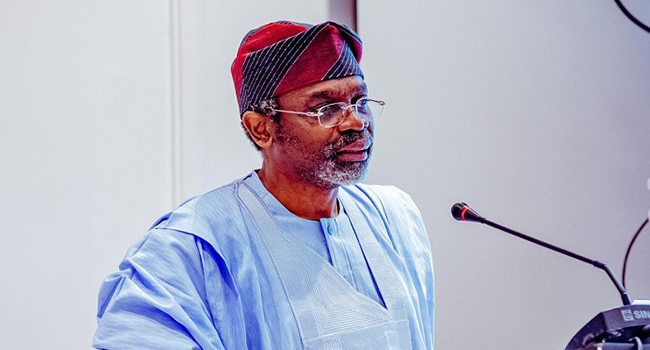Chief of Staff to the President, Femi Gbajabiamila reiterated yesterday that social media poses a threat and must be subject to regulation.
Gbajabiamila delivered the statement at Eko Hotels Lagos, where he stood in for President Bola Ahmed Tinubu during the public presentation of a book titled “Nigerian Public Discourse: The Interplay of Empirical Evidence and Hyperbole,” authored by former Lagos State Governor and former Minister of Works and Housing, Babatunde Raji Fashola.
In his preamble before reading the message of the president, Gbajabiamila said: “Perhaps, and I believe many of you here, unless of course you don’t live in this geographical space… this is the topic for which I am absolutely very much interested – the menace of social media. Although it has the potential to reach millions all around the world, but (the social media) poses great danger, not just to the society, but even unintended consequences to the individual who is at the receiving end, including security of life.
“The question that I normally ask is,‘who do you hold responsible;the purveyor of the fake news, or the person who reads it?
Gbajabiamila said as Speaker of the House of Representatives, he attempted to make a law that will regulate the social media “but we were resisted very vigorously by the Civil Society. I think the chickens have finally come home to roost. And I believe we are all on the same page now.The social media is a menace, and it must be regulated.”
Reading the message from the president, Gbajabiamila said amid the global current global toil, “we are at home confronted by difficult policy in choices and decision that must be made to ensure our children’s future and our country’s prospect.
“Now, in this historical moment, as we confront the challenges that threaten our future, we have obligation as leaders in politics and government to engage in evidence-based discourse and data-reliance decision-making as a matter of course. But…in the issues of state and government, the obligation is even more significant to ensure that people, in our engagement with each other springs from a shared agreement on what truth is, what is real, and what isn’t.
“We live in what some observers have described as the post-truth world. This a world where nothing is real. Politics is fueled by emotive argument and objective facts are less influential in shaping public opinion that appeals to identity and personal beliefs.
“In this new world we find ourselves, public discourse is driven by alternative facts, dropped with reckless abandon on the social media technology, including Artificial Intelligence tools,allowing for the creation of false reality to deceive and confuse people, distort perception of what is real and what isn’t.
“The challenge we face and must meet head on is how to return to having a public discourse and a political decision-making process that overcome this paradigm.
“We must, because if we cannot agree on common truth and don’t exist in the same reality, then we cannot develop the shared values and the common purpose which are central requirement to social cohesion and national identity.
“My brother, Raji Babatunde Fashola, has set out to address this challenge in this book. In his usual style, he has approached the subject with an abundance of scholarly rigour, bringing his considerable intellect, wealth of experience and passionate patriotism to the critical subject matter that has been too long ignored.”



